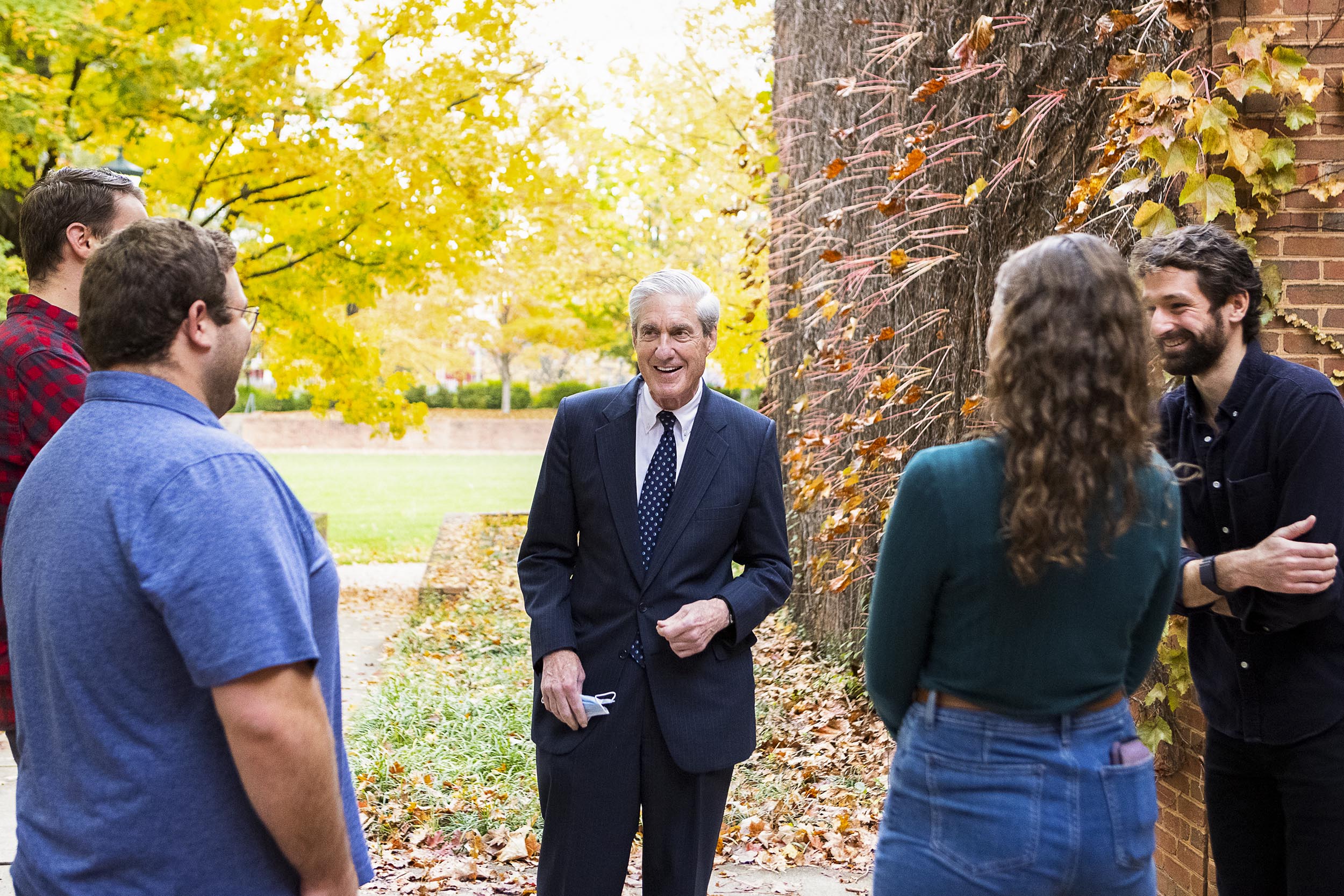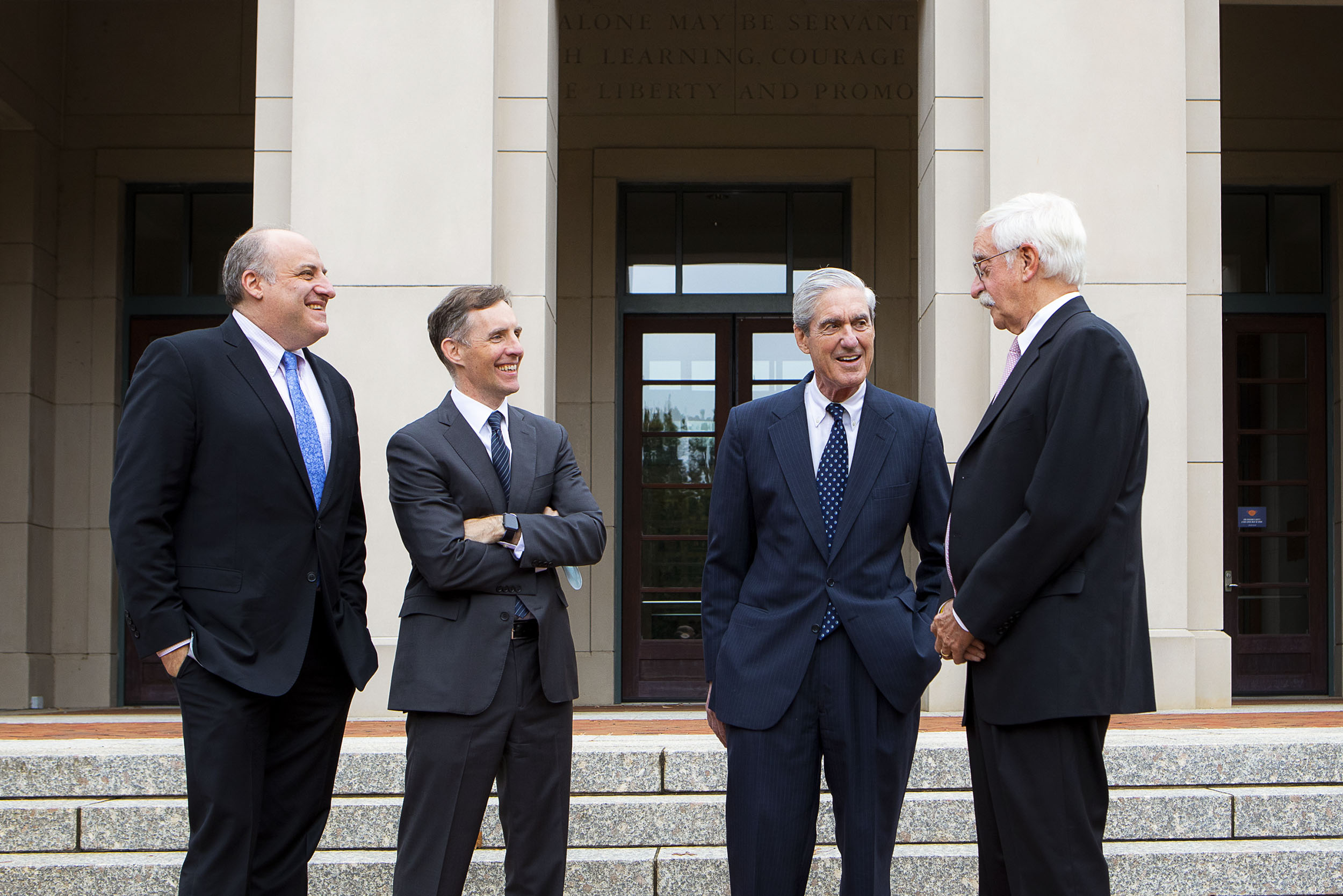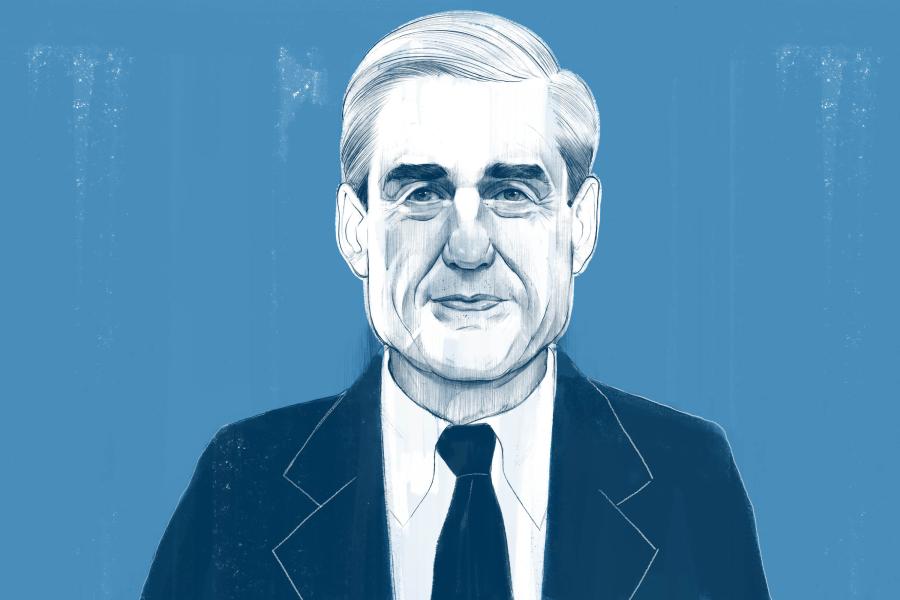It seemed that everyone had an opinion about the special counsel’s investigation into Russian interference in the 2016 U.S. presidential election. Despite the largely unprecedented nature of the work, armchair quarterbacks from left, right and center gave their take. The investigation resulted in almost three dozen people being indicted or entering guilty pleas and culminated in the 448-page “Mueller Report.”
Recently, the leaders of the historic probe taught a short course for a select group of third-year University of Virginia law students, walking them through the decision points of their investigation. The attorneys – including the special counsel himself, former FBI Director Robert Mueller, a 1973 graduate of the Law School, as a guest lecturer – invited students to judge their work and what they might have done better.
“They were being pretty vulnerable in going through their thought process,” said Robert Mathai, who was among the 16 students chosen by lottery to take the course, offered in September and October.
The instructors for the course, “The Mueller Report and the Role of the Special Counsel,” were former FBI agent and Class of 1996 law graduate Aaron Zebley, litigator Jim Quarles and former federal prosecutor Andrew Goldstein, with Mueller attending all of the sessions and addressing the class at times.
Zebley, also a former federal prosecutor, served as deputy special counsel to the investigation. Quarles, with his previous experience as a prosecutor in the Watergate scandal, was senior counsel to Mueller. And Goldstein, a former federal prosecutor focused on public corruption cases, was senior assistant special counsel.
The attorneys discussed such high-profile decisions as what to do after the attorney general released a letter to Congress interpreting their report’s findings and whether to subpoena the sitting president.





